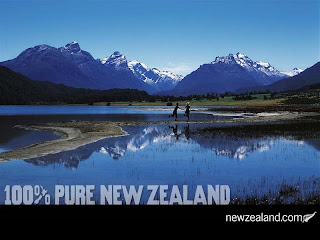Climate Change
Climate change is the mother of all environmental problems. It is the most complex issue that humans will face living on planet earth because it is extremely complex. Humans have built their existence on growth and our energy demands are increasing, this constant need for growth and energy has led to a wasteful existence and an unsustainable use of the planets resources. Some of the effects of climate change that may impact on New Zealand include increased temperatures, changed weather patterns, and a mean sea level rise.
‘Climate Proofing’ NZ
The National Institute of Water and Atmosphere and Landcare Research is planning a four year $7.2 million project with aims to ‘climate proof’ New Zealand. The research team will also include members from AgResearch, Victoria University, Bodeker Scientific, Motu Economic Research, Plant & Food, Scion and the University of Waikato. This study plans to examine potential climate change impacts on New Zealand's economy, environment and society in an integrated and coordinated fashion. This is an ambitious task that will require an IEM approach to define such a complex issue and to coordinate so many different agencies. The work will be divided into five projects:
- Update and improve regional-scale projections of climate trends and variability across New Zealand out to 2100 based on the latest global projections.
- Identify likely impacts, environmental pressure points, implications and potential policy and management implications for five important environments: alpine and high-elevation native forest ecosystems; high-country and hill-country environments and land use; lowland environments and land use; coastal and estuarine ecosystems; and the ocean food chain.
- Identify interactions between climate change and other key drivers, and their cumulative impacts across New Zealand, by linking results from climate, biophysical, economic, demographic, land-use change and stakeholder models. That will include work on freshwater supply, quality and use.
- Enhance the capacity to generate, translate, share and apply climate change knowledge with stakeholders.
- Provide information to support coordinated, evidence-based decision-making and policy development.
 |
| Projected Temperature changes for NZ for 2090 |
IEM approach to climate change
This study also includes participation with the end users including government, business, iwi and communities. According to the framework provided, this investigation incorporates many of the principles necessary for an IEM approach to climate change in New Zealand. In fact, this study appears to be very integrative. I'd almost say that if all goes to plan with this study, it has real potential to be the ‘poster boy´ for all IEM studies...!! Exciting, I know. However, in the policy process not everything is as straight forward as it seems, but with a comprehensive framework this study is off to a really good start.
Reference

